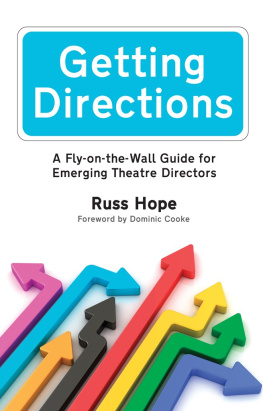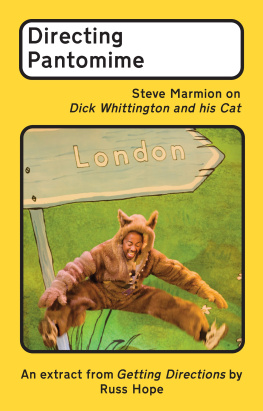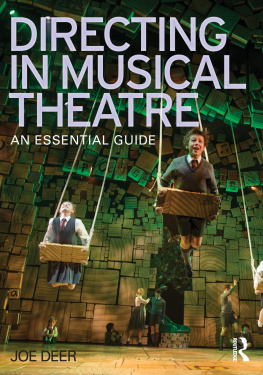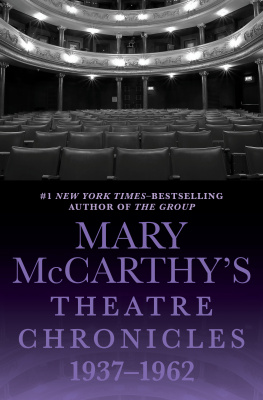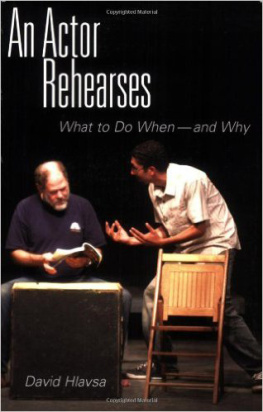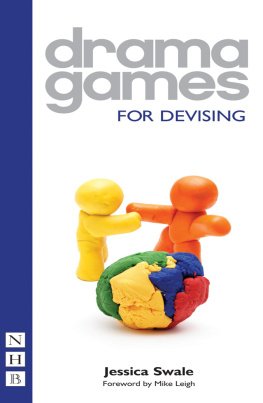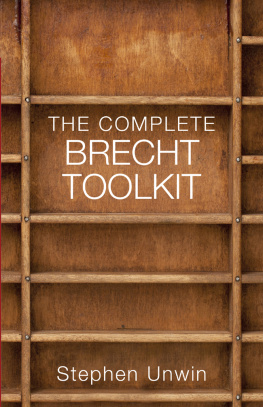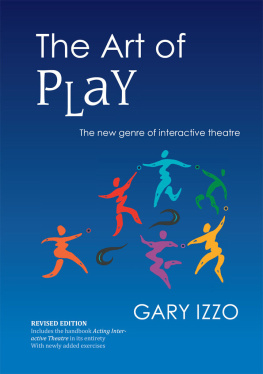Russ Hope - Getting Directions: A Fly-on-the-Wall Guide for Emerging Theatre Directors
Here you can read online Russ Hope - Getting Directions: A Fly-on-the-Wall Guide for Emerging Theatre Directors full text of the book (entire story) in english for free. Download pdf and epub, get meaning, cover and reviews about this ebook. year: 2013, publisher: Nick Hern Books, genre: Home and family. Description of the work, (preface) as well as reviews are available. Best literature library LitArk.com created for fans of good reading and offers a wide selection of genres:
Romance novel
Science fiction
Adventure
Detective
Science
History
Home and family
Prose
Art
Politics
Computer
Non-fiction
Religion
Business
Children
Humor
Choose a favorite category and find really read worthwhile books. Enjoy immersion in the world of imagination, feel the emotions of the characters or learn something new for yourself, make an fascinating discovery.
- Book:Getting Directions: A Fly-on-the-Wall Guide for Emerging Theatre Directors
- Author:
- Publisher:Nick Hern Books
- Genre:
- Year:2013
- Rating:3 / 5
- Favourites:Add to favourites
- Your mark:
Getting Directions: A Fly-on-the-Wall Guide for Emerging Theatre Directors: summary, description and annotation
We offer to read an annotation, description, summary or preface (depends on what the author of the book "Getting Directions: A Fly-on-the-Wall Guide for Emerging Theatre Directors" wrote himself). If you haven't found the necessary information about the book — write in the comments, we will try to find it.
The theatre rehearsal room is a sacred place. What goes on there is mysterious, alchemical and closely guarded. So how are aspiring theatre directors supposed to learn their craft?
In Getting Directions, Russ Hope gives us the benefit of unprecedented, fly-on-the-wall access to eight rehearsal rooms. He has shadowed some of the UKs most exciting young directors at each step of the way, on productions as diverse as Shakespeare at the Globe, Greek tragedy at the Gate, Tennessee Williams at the Young Vic, panto at the Lyric Hammersmith, and a touring Dickens dramatisation.
Describing each of these rehearsal periods from first concept to first night in revealing and often remarkable detail, Hope gets under the skin of the professional director, and reveals the decisions they must make on a daily basis: How best to arrive at a concept and communicate this to a design team? Which games and exercises really help to unlock the text for actors? And what should you do if everything is falling apart during the tech?
Getting Directions will equip emerging directors with a practical handbook, not bogged down with theories or precepts, that lifts the lid on what it means to be a director. The result is both a portrait and a masterclass from a generation of theatre practitioners, essential reading for anyone who wants to follow in their footsteps, or to understand what directing really entails.
CHAPTERS:
An incisive kaleidoscope of rehearsal-room practice which is a useful tool for directors to borrow from and a fascinating insight for the curious. Dominic Cooke, from his Foreword
A useful weapon in the armoury of any aspiring director and of great interest to anyone who would like to know more about what goes on in the rehearsal rooms in the modern theatre British Theatre Guide
Russ Hope: author's other books
Who wrote Getting Directions: A Fly-on-the-Wall Guide for Emerging Theatre Directors? Find out the surname, the name of the author of the book and a list of all author's works by series.

